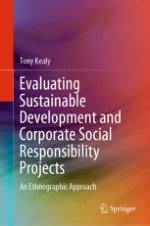2020 | OriginalPaper | Buchkapitel
7. Key Enablers/Inhibitors in the Corporate Social Responsibility—Business Strategy Integration Space
verfasst von : Dr. Tony Kealy
Erschienen in: Evaluating Sustainable Development and Corporate Social Responsibility Projects
Aktivieren Sie unsere intelligente Suche, um passende Fachinhalte oder Patente zu finden.
Wählen Sie Textabschnitte aus um mit Künstlicher Intelligenz passenden Patente zu finden. powered by
Markieren Sie Textabschnitte, um KI-gestützt weitere passende Inhalte zu finden. powered by
